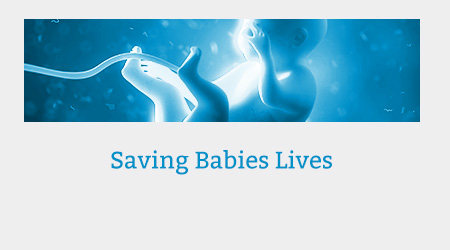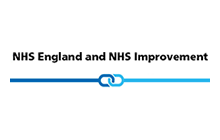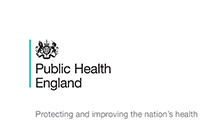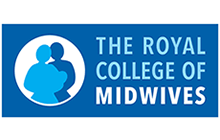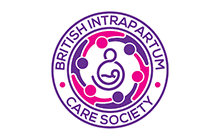About the Saving Babies’ Lives programme
Aims and ambitions
The Saving Babies’ Lives elearning programme has been developed to support the delivery of the Saving Babies’ Lives Care Bundle Version Two (SBLCBv2) in maternity units across the NHS. SBLCBv2 has been produced to build on the achievements of version one and address the issues identified in the SPiRE evaluation. It aims to provide detailed information for providers and commissioners of maternity care on how to reduce perinatal mortality across England. The second version of the care bundle brings together five elements of care that are widely recognised as evidence-based and/or best practice, these are:
- Reducing smoking in pregnancy
- Risk assessment, prevention and surveillance of pregnancies at risk of fetal growth restriction (FGR)
- Raising awareness of reduced fetal movement (RFM)
- Effective fetal monitoring during labour
- Reducing preterm birth
The programme is aimed at midwives and obstetricians.
Learners will benefit through improved midwifery and obstetric knowledge and skills to undertake implementation of each element of the Saving Babies’ Lives Care Bundle Version Two, improving safety for women and their babies across England.
Programme content
The programme consists of five sessions, each one relating to an individual element of the Saving Babies’ Lives Care Bundle Version Two.
Content focuses on:
-
Element 1: Very Brief Advice on smoking for pregnant woman
Element 1: Very Brief Advice on smoking for pregnant woman
This session focuses on the delivery of very brief advice (VBA) on smoking to pregnant women, including carbon monoxide (CO) screening. NICE guidance recommends that all women are CO screened at antenatal appointments, with those having elevated levels referred for specialist support to stop smoking. This session is aimed at helping members of the midwifery team to deliver very brief advice (VBA) on smoking to their patients.
By the end of the session participants will be able to:
- Describe the main effects of smoking upon the health of mother and baby
- Understand the patterns and prevalence of smoking among pregnant women
- Provide an overview of VBA (ASK, ADVISE, ACT) and where this fits into the care pathway
- Establish smoking status (ASK), including CO screening
- Advise women on the best way of stopping smoking or managing their exposure to smoke (ADVISE)
- Support women to quit or manage their exposure to smoke (ACT)
- Deal with issues as they arise
- Complete a short assessment to consolidate your knowledge
Duration: 60 minutes
-
Element 2: Detection and Surveillance of Fetal Growth Restriction
Element 2: Detection and Surveillance of Fetal Growth Restriction
This session is designed to accompany element 2 of the SBLCBv2. It will provide an understanding of the core principles of the stillbirth risks associated with Fetal Growth Restriction and the element’s suggested measures to reduce this by improving detection and management.
By the end of the session participants will be able to:
- Describe the difference between Small for Gestational Age and Fetal Growth Restriction
- Describe different features of early and late onset Fetal Growth Restriction
- Explain how pregnancies are assessed for the risk of Fetal Growth Restriction using risk factors and findings in pregnancy
- Describe the different risk surveillance strategies once pregnancies have been risk assessed
- Describe how fetal growth and wellbeing can be monitored when early and late FGR have been diagnosed
- Discuss intervention in the form of early delivery for fetal growth restriction
Prerequisites:
Before commencing this session you should have:
- Read ‘Element 2′ of the Saving Babies’ Lives Care Bundle Version Two, including appendices C and D [1]
- Familiarity with Symphysis Fundal Height Measurement and antenatal care aimed at Fetal Growth Restriction detection
- An understanding of how ultrasound can be used to assess fetal size
- An understanding of what is meant by estimated fetal weight centile and birthweight centile
Duration: 30 minutes
-
Element 3: Reduced Fetal Movements
Element 3: Reduced Fetal Movements
This session will provide maternity healthcare professionals with knowledge to understand the association between reduced fetal movements (RFM) and late stillbirth (≥28 weeks’ gestation) and information about the impact of different management strategies.
By the end of the session participants will be able to:
- Describe the association between reduced fetal movements (RFM) and late stillbirth by understanding physiology and pathophysiology
- Demonstrate awareness of evidence about the contribution of suboptimal care of RFM to late stillbirth
- Describe the recommended management plan for women presenting with RFM after 28 weeks’ gestation
- Evaluate care given for RFM from a multidisciplinary perspective
Prerequisites:
Before commencing this session you should have:
- The standard pathway (recommended by NICE) for antenatal care in low-risk and high-risk pregnancies
- The maternal perception of RFM
- The interpretation of antenatal cardiotocography (CTG) and late pregnancy ultrasound scanning for fetal biometry, liquor volume and umbilical artery Doppler with reference to growth centiles
Duration: 20 minutes
-
Element 4: Effective Continuous Fetal Monitoring during Labour
Element 4: Effective Continuous Fetal Monitoring during Labour
This session provides an introduction to key principles of risk assessment at the onset of labour in order to determine the optimum method of fetal monitoring in labour. The session also addresses the reassessment of risk factors and use of ‘fresh eyes’ as an opportunity for risk assessment at regular intervals in labour.
By the end of this session you should be able to:
- Describe a risk assessment at the onset of labour to decide the recommended mode of fetal monitoring in labour
- Explain the significance of regular reassessments of risk in labour
- Identify the risk factors that appear in labour and recommend continuous fetal monitoring in labour
- Identify the factors to consider when cardiotocograph (CTG) changes are noted in labour
- Explain the role of buddy system/‘fresh eyes’ in intrapartum fetal monitoring
Prerequisites:
Before commencing this session you should have:
- Completed annual training in fetal monitoring within your maternity unit
- Basic knowledge of fetal physiology
- Knowledge of local guideline for CTG interpretation
Duration: 20 minutes
-
Element 5: Reducing Preterm Birth
Element 5: Reducing Preterm Birth
This session provides guidance on the effective prediction, prevention and preparation for preterm birth, all key aspects of the Saving Babies’ Lives Care Bundle version 2 (2019).
By the end of the session participants will be able to understand:
- Demonstrate awareness of the incidence, causes, and consequences of preterm birth
- Describe the ways in which effective prediction and prevention can be incorporated into clinical practice
- Explain how to optimise care for mothers presenting in preterm labour
Prerequisites:
Before commencing this session you should have:
- Basic knowledge of the causes and treatment for preterm birth
Duration: 20 minutes
More information
The SBLCBv2 programme aims to improve safety for mothers and babies by improving the knowledge, skills and confidence of midwives and obstetricians by providing a practical approach to the following:
- Reducing smoking in pregnancy by following NICE guidance;
- Identifying women with pregnancies at highest risk of Fetal Growth Restriction;
- Encouraging awareness amongst pregnant women of the importance of detecting and reporting reduced fetal movement and to appropriately care for and manage women who report RFM;
- Understand the principles of risk assessment at the onset of labour in order to determine the optimum method of fetal monitoring in labour;
- Aiming to reduce preterm births by focussing on three intervention areas to improve outcomes which are prediction and prevention of preterm birth and better preparation when preterm birth is unavoidable.
The NHS Long Term Plan reiterates the commitment of the NHS to a 50% reduction in stillbirth, maternal mortality, neonatal mortality and serious brain injury and a reduction in preterm birth rate, from 8% to 6%, by 2025.
Meet the team

Karen Thirsk
Safety and Prevention Manager / Maternity Policy and Women’s Health Team, NHS England and NHS Improvement
Emily Clinton
Programme Support Manager, Maternity Transformation Programme, Nursing Directorate, NHS England
Emma Nye
Project Manager, HEE elearning for healthcare
Paula Casey
Lead Learning Designer, HEE elearning for healthcare
Paul Kelly
Learning Designer, HEE elearning for healthcare
Tracy Watkins
Learning Designer, HEE elearning for healthcare
Alex Drinkall
Stakeholder Manager, HEE elearning for healthcare
Authors
Element 1 Reducing Smoking in Pregnancy
- Jo Locker, Senior Tobacco Control Programme Manager, Alcohol, Drugs, Tobacco and Justice Division, Public Health England
Element 2 Detection and Surveillance of Fetal Growth Restriction
- Ed Johnstone, Consultant Obstetrician, Professor in Obstetrics and Fetal Medicine, St Mary’s Hospital, University of Manchester
- Katie Morris, Consultant Obstetrician, Reader Maternal Fetal Medicine, Birmingham Women’s and Children’s Hospital, University of Birmingham
- Suzanne Thomas, SGA Specialist Midwife, Tommy’s Research Centre, University of Manchester
Element 3 Reduced Fetal Movements
- Alexander Heazell, Professor of Obstetrics and Director of the Tommy’s Research Centre, University of Manchester
- Libby Baraz, Midwifery Sister, Royal United Hospital Bath NHS Foundation Trust
Element 4 Effective Continuous Fetal Monitoring during Labour
- Louise Page, Consultant Obstetrician & Gynaecologist, Chelsea and Westminster Hospital NHS Foundation Trust, British Intrapartum Care Society President
- Rachna Bahl, Consultant Obstetrician, St. Michael’s Hospital, University Hospitals Bristol NHS Trust
- Natalie Carter, Consultant Midwife, Chelsea and Westminster NHS Foundation Trust
Element 5 Reducing Preterm Birth
- Nigel Simpson, Senior Clinical Lecturer and Honorary Consultant in Obstetrics & Gynaecology at the University of Leeds and Leeds Teaching Hospitals NHS Trust
- Elizabeth Bonney, Consultant Obstetrician, Leeds Teaching Hospitals NHS Trust
How to access
In order to access the Saving Babies’ Lives programme, you will need an elfh account. If you do not have one, then you can register by selecting the Register button below.
To view the Saving Babies’ Lives programme, select the View button below. If you already have an account with elfh, you will also be able to login and enrol on the programme from the View button.
Not an NHS organisation?
If you are not an NHS health or care organisation and therefore do not qualify for free access elfh Hub, you may be able to access the service by creating an OpenAthens account.
To check whether or not you qualify for free access via OpenAthens, you can view the eligibility criteria and register on the ‘OpenAthens’ portal.
Registering large numbers of users
If you are a HR, IT or Practice Manager and would like to register and enrol large numbers of staff within your organisation for access onto the Saving Babies’ Lives programme, please contact elfh directly.
Organisations wishing to use their own LMS
For HR departments wanting to know more about gaining access to courses using an existing Learning Management System please contact elfh directly to express interest.
More information
Please select the following link for more information on how to use the elfh Hub.



